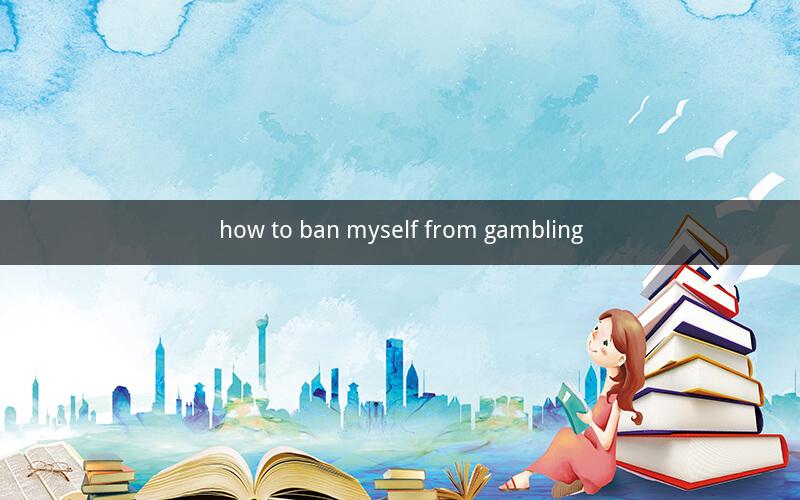
Table of Contents
1. Understanding the Problem
2. Identifying the Reasons for Your Gambling Habit
3. Setting Clear Goals
4. Creating a Support System
5. Developing Strategies to Avoid Temptation
6. Using Technology to Your Advantage
7. Seeking Professional Help
8. Building a Healthy Lifestyle
9. Learning from Past Mistakes
10. Staying Committed to Change
1. Understanding the Problem
Gambling can be an all-consuming addiction that ruins lives and relationships. It's essential to recognize the signs of a gambling problem before it spirals out of control. Symptoms include feeling the need to gamble more to achieve the same thrill, lying about your gambling activities, and neglecting responsibilities due to your addiction.
2. Identifying the Reasons for Your Gambling Habit
Understanding the underlying reasons for your gambling habit is crucial in overcoming it. Common reasons include seeking excitement, escaping reality, or dealing with emotional issues. Identifying these reasons will help you develop strategies to address them.
3. Setting Clear Goals
Set clear, achievable goals to overcome your gambling addiction. These goals should be specific, measurable, attainable, relevant, and time-bound (SMART). For example, you might aim to avoid gambling for one month or to seek help from a professional counselor.
4. Creating a Support System
Surround yourself with supportive friends, family, or support groups. They can provide encouragement, hold you accountable, and offer a listening ear when you're struggling. Consider joining a Gamblers Anonymous group or seeking guidance from a therapist specializing in addiction.
5. Developing Strategies to Avoid Temptation
Identify the triggers that lead you to gamble and develop strategies to avoid them. This may involve deleting gambling apps from your phone, avoiding casinos or betting shops, and keeping a list of activities to replace gambling as a form of entertainment.
6. Using Technology to Your Advantage
Leverage technology to support your recovery journey. Use apps that block gambling websites, set spending limits on credit cards, or provide reminders to stay on track. Additionally, track your progress with a journal or an app to monitor your gambling behavior.
7. Seeking Professional Help
Professional help is essential for overcoming a gambling addiction. A therapist or counselor can provide personalized strategies, support, and coping mechanisms to deal with the underlying issues contributing to your addiction. They can also help you develop a comprehensive plan for recovery.
8. Building a Healthy Lifestyle
A healthy lifestyle can help you manage stress and reduce the urge to gamble. Incorporate regular exercise, a balanced diet, and adequate sleep into your daily routine. Engage in hobbies and activities that provide fulfillment and reduce the temptation to gamble.
9. Learning from Past Mistakes
Reflect on past mistakes and learn from them. Acknowledge the consequences of your gambling addiction and commit to making better choices moving forward. Use this knowledge to strengthen your resolve and stay committed to your recovery goals.
10. Staying Committed to Change
Maintaining your commitment to change is vital for overcoming a gambling addiction. Stay focused on your goals, seek support when needed, and be patient with yourself. Remember that recovery is a journey, and setbacks are a natural part of the process.
Questions and Answers
1. Q: How can I identify if I have a gambling problem?
A: Look for signs such as feeling the need to gamble more, lying about your gambling activities, neglecting responsibilities, and experiencing financial difficulties.
2. Q: What are some effective strategies to avoid temptation?
A: Develop a list of activities to replace gambling, avoid triggering environments, and use technology to block gambling websites or set spending limits on credit cards.
3. Q: How can I create a support system?
A: Reach out to friends, family, or support groups, such as Gamblers Anonymous. Consider seeking guidance from a therapist specializing in addiction to help you build a strong support network.
4. Q: Can technology help me overcome my gambling addiction?
A: Yes, technology can be a powerful tool in your recovery journey. Use apps to block gambling websites, set spending limits, and track your progress.
5. Q: How can I set SMART goals for overcoming my gambling addiction?
A: Make sure your goals are specific, measurable, attainable, relevant, and time-bound. For example, aim to avoid gambling for one month or to seek help from a professional counselor within a specific timeframe.
6. Q: Is professional help necessary for overcoming a gambling addiction?
A: While not everyone requires professional help, it can be highly beneficial. A therapist or counselor can provide personalized strategies, support, and coping mechanisms to deal with the underlying issues contributing to your addiction.
7. Q: How can I build a healthy lifestyle to support my recovery?
A: Incorporate regular exercise, a balanced diet, and adequate sleep into your daily routine. Engage in hobbies and activities that provide fulfillment and reduce the temptation to gamble.
8. Q: What should I do if I experience a setback in my recovery journey?
A: Acknowledge the setback, learn from it, and commit to making better choices moving forward. Seek support from your support system or a professional counselor to help you regain focus and motivation.
9. Q: How long does it take to overcome a gambling addiction?
A: Recovery from a gambling addiction is a unique journey for each individual. Some may experience immediate success, while others may require ongoing support and commitment to achieve lasting change.
10. Q: Can I still enjoy gambling in moderation after overcoming my addiction?
A: It's generally recommended to avoid gambling altogether after overcoming an addiction. The risk of relapse is high, and it's essential to stay committed to your recovery journey.